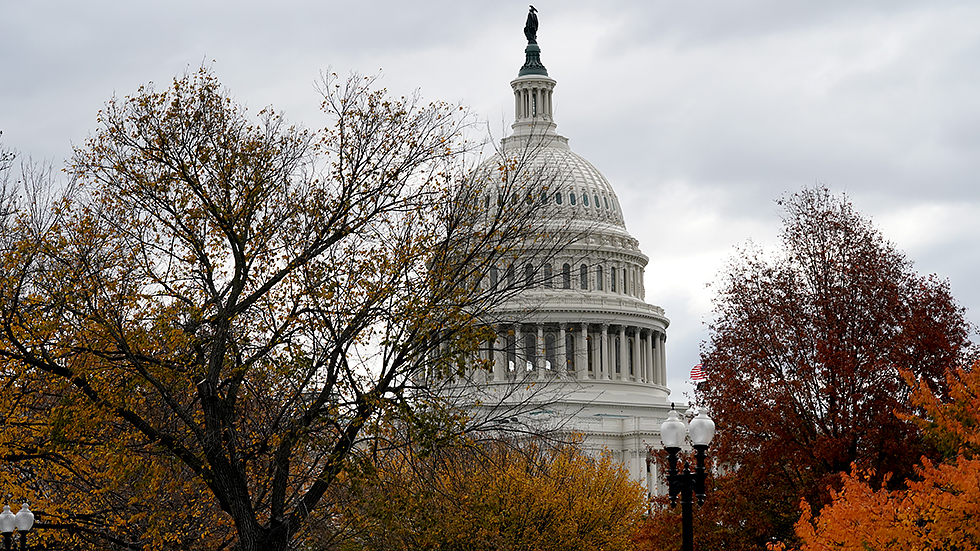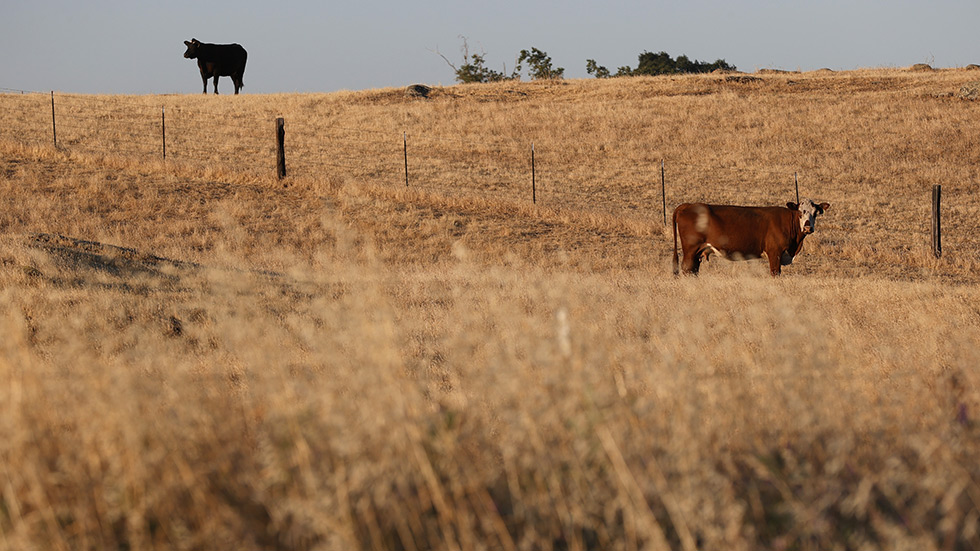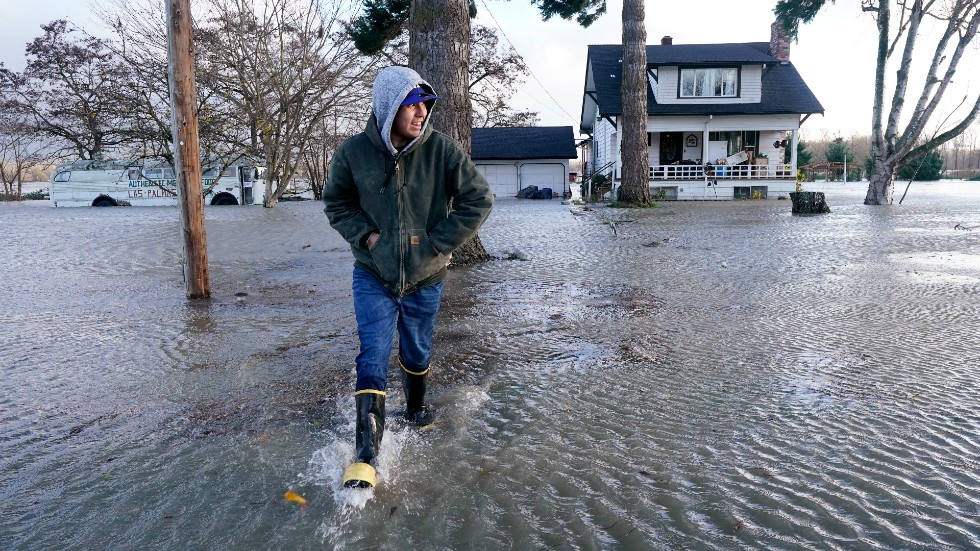Equilibrium/Sustainability — Presented by Southern Company — Climate crisis driving child marriages: report
Today is Friday. Welcome to Equilibrium, a newsletter that tracks the growing global battle over the future of sustainability. Subscribe here: digital-stage.thehill.com/newsletter-signup.
Child marriages in Afghanistan are reportedly surging, driven not only by ongoing violence, but also by the impacts of climate change that have forced thousands of agrarian households to uproot their families, according to an Undark investigation.
One single mother, Rabia, left her home after extreme drought left her unable to raise her sheep, Undark reported. Upon settling in a one-room mud home outside of Mazar-i-Sharif, Rabia said she had no choice but to provide her 11-year-old daughter Shukria’s hand in marriage to a man twice her age, in exchange for $6,000 worth of flour, rice and cash, according to Undark.
“I know my daughter is a child, and it was too early for her to be married,” Rabia told Undark. “It was either her marriage or our funerals.”
While data collection about child marriages in Afghanistan is limited, several organizations have observed a rise in such unions corresponding with periods of drought, Undark reported, citing studies from UNICEF and the Norwegian Refugee Council.
Today we’ll turn toward a major step the U.S. has taken to combat a changing climate at home — the passing of President Biden’s $2 trillion spending plan in the House. Then we’ll sit down with a software startup that is making social and sustainability impact data available on millions of specific ingredients to the brands that produce them.
For Equilibrium, we are Saul Elbein and Sharon Udasin. Please send tips or comments to Saul at selbein@digital-stage.thehill.com or Sharon at sudasin@digital-stage.thehill.com. Follow us on Twitter: @saul_elbein and @sharonudasin.
Let’s get to it.
House passes clean energy, social policy bill

The House of Representatives passed a sweeping climate change and social policy package in a tight vote on Friday.
With a size of roughly $2 trillion — the final numbers are disputed — the Build Back Better America (BBB) legislation is billed by the Biden administration as a “plan to rebuild the middle class,” the lays the groundwork for the ramp-up of a U.S.-built clean-energy economy.
First words: The bill contains hundreds of billions for expansions in child care, pre-Kindergarten and eldercare as well as measures to drop prescription drug coverage and expand health insurance coverage, according to the White House.
But the biggest component of the BBBA is $555 billion for climate and clean-energy initiatives.
Like what?
- $110 billion for “growing domestic supply chains” for windmill turbines, electric vehicles, transmission lines and solar solar installations.
- $105 billion for boosting resilience to drought, floods and wildfires, including subsidies for “natural climate solutions” and the use of farm and forest landscapes to suck up carbon.
- $29 billion for a green development bank, the Clean Energy and Sustainability Accelerator, to directly finance projects that the market isn’t funding.
- $30 billion to put a 300,000 member Civilian Climate Corps to work upgrading America’s public lands to meet the challenges of climate.
There is also an array of smaller programs that have been personal projects for individual representatives, like $4.1 billion for electric bikes, $2.5 billion to plant trees in poor neighborhoods, The New York Times reported. And $95 million would go to local firefighting departments, to purchase gear free of forever chemicals, as the Environmental Work Group noted.
What fell out? One major element cut was the $150 billion for the Clean Energy Performance Programs, a proposal that offered subsidies to utility companies that increased their renewable energy share by 4 percent per year, while fining them if they failed, The Washington Post reported.
Sen. Joe Manchin (D-W.Va.) refused to back that proposal — and he is also lukewarm about proposals to tax methane, a climate-warming gas 85 times more potent than carbon dioxide, which is a key element of President Biden’s plan to reduce emissions of the gas 30 percent by 2030, The Hill reported.
A MESSAGE FROM SOUTHERN COMPANY
At Southern Company, we achieved our interim net zero energy goal ten years early. Today, we continue our work toward a net zero future. Learn more.
NOW, ON TO THE SENATE
From tight to razor-thin: The methane tax — like tax credits for electric vehicles, and a paid family leave program, which Manchin also opposes — will be up for grabs as the bill moves to the Senate, in a vote tentatively scheduled for after the Thanksgiving break.
In the Senate, the Democrats have even less wiggle room than the House, where BBBA passed 220-213 along strictly partisan lines. The sole exception was Rep. Jared Golden (D-Maine.) who voted with the Republicans, The Hill reported.
Golden wrote on Twitter that he voted against the bill because of tax changes that benefited millionaires and billionaires.
In the Senate, the totals are 50-50, with Vice President Harris casting the tie-breaking vote. That will give Manchin a lot of leverage to make further cuts.
What are Republicans saying? House Minority Leader Kevin McCarthy (R-Calif.) broke records with “an angry, rambling speech” about the devastating effects the bill would have on the country, our colleagues reported. McCarthy’s all-nighter may have been an attempt to shore up his right flank against Trump loyalists who have lately “lambasted” him, according to an analysis by CNN.
A debate over numbers: Republicans point to a study by the Congressional Budget Office which found a $160 billion shortfall between the money spent in the bill, and the money it will raise by hikes to the corporate tax rate, as well as an IRS newly empowered to go after wealthy tax evaders, The Hill reported. The administration disputes these numbers.
Republicans, who passed a 2017 tax break that increased the deficit by $1.7 trillion, are already opposing the measure on deficit grounds, the Associated Press reported.
Last words: “If you are a parent, a senior, a child, a worker, if you’re an American, this bill’s for you,” said House Majority Leader Nancy Pelosi (D-Calif.), according to the AP.
Agricultural data can steer sustainable choices

Having accessible data about the emissions generated or labor practices that occur during crop cultivation can help steer brands and retailers toward sustainable decisions, according to Ethan Soloviev, chief innovation officer at the software as a service (SaaS) platform HowGood.
HowGood — which raised $6 million earlier this year — provides data on emissions, biodiversity, farm labor conditions, animal welfare and water usage associated with individual product ingredients, according to the company. The database includes 33,000 ingredients from 2 million products, Soloviev said.
Equilibrium sat down with Soloviev to find out more about the platform, and its capacity to shift corporate practices.
Equilibrium: What kinds of information might HowGood divulge?
Soloviev: Say you have a chocolate bar. If you look at the chocolate bar, you can just read the ingredients and I can tell you a huge amount about that chocolate bar. It says cocoa powder, cocoa butter — we know that 70 percent of the cocoa powder and cocoa butter comes from Ghana and Cote d’Ivoire, just in the world. That’s where it comes from.
And despite 20 years of work, there’s still the risk of child and slave labor in Ghana and Cote d’Ivoire, where cocoa seed is produced. So unless you know more about the sourcing of the cacao [an example of data HowGood provides], or you get it from somewhere else or have a certain certification, it’s likely that you have those risks.
Is the data available to consumers?
HowGood does make its data freely available to consumers. But that’s not our focus, and it’s not our business model. We partner primarily with retailers and brands. So in the D.C. area, Ahold Delhaize and Giant supermarkets … use our data to assess the products on their shelves and then communicate that directly to shoppers in store. So right next to the price tag, you can actually see the good, great and best products on the shelf.
How do you quantify the emissions products are generating, when there are so many steps in the supply chain?
The vast majority of the impact — 65 to 95 percent of the impact — comes from the production of the agricultural goods that went into that product.
What we focus on primarily, because most of the impact is there, is what will be called the “farm to gate” — so, the production that’s happening on-farm, all the way up until it leaves the gate of that farm.
THE GASSINESS OF COWS
What’s generally the biggest contributor to farm to gate emissions?
So basically, it’s cow burps and farts.
Do you make calculations based on individual cows?
We don’t go to the actual individual farm. We work with the researchers and scientists who publish the papers who figure out exactly what that is in each location that cow is living, doing its thing.
And how might a brand’s actions change based on this knowledge?
They would go in and put in “unused milk from the Southwest,” or something like that. And we would say great, based on the research we have in our database, from the scientists who study this, that milk produces a certain amount of greenhouse gas emissions.
They also can tell, is that worse than the industry average, is that better than the average? What if I moved that to a source from Washington?
Are such shifts to more sustainable practices more expensive?
Somebody was looking at a sweetener, and they were looking at switching from a tapioca syrup produced from cassava, in Southeast Asia, to a rice syrup that was domestically produced in the U.S. And it looked like they could actually get a cost savings, switching to the rice syrup, but they weren’t sure about the sustainability impact.
And they checked in the platform, and it turned out that the rice syrup actually had better impact scores overall. So there was a cost savings by getting more sustainable. So it’s not always the case that it’s more expensive.
A MESSAGE FROM SOUTHERN COMPANY
At Southern Company, we achieved our interim net zero energy goal ten years early. Today, we continue our work toward a net zero future. Learn more.
Follow-up Friday

Another look at issues we’ve explored throughout the week.
Pacific Northwest floods buckle Canada’s supply chains
- The meteorological impact of this week’s Pacific Northwest floods — which we covered earlier this week — coupled with the region’s geology of steep canyons and rushing rivers, severed Canada’s cities and farms from Vancouver, its largest port, Reuters reported.
- The recent storm served as a grim rejoinder to a 2019 report by the British Columbia government, which had predicted that “extreme precipitation and landslide” events might cut cities off by 2050, but was currently “unlikely,” according to Reuters.
- “Like many climate disasters, this one came early,” Grist reported.
New Delhi still buried in smog, but farmers celebrate surprise win
- New Delhi’s air quality remained “very poor” on Friday and was only expected to improve on Sunday, according to the Times of India.
- The city is experiencing a pollution lockdown — caused by vehicle and industrial emissions, as well as incineration of trash and crop residue, as we reported.
- While India’s Supreme Court ordered a cessation in crop burning earlier this week, farmers had reason to celebrate on Friday, after Prime Minister Narenda Modi repealed a series of reforms that had rolled back subsidies for staple crops, as well as other sweeping administrative changes, The Washington Post reported.
- Modi’s surprise decision, considered a political setback, came after more than a year of protests near New Delhi, where farmers sometimes ended up in bloody battles with police and government supporters, according to the Post.
U.S. and China join forces to lower gas prices
- The U.S. and China are expected to both release oil from their strategic petroleum reserves after a conference between Presidents Xi Jinping and Joe Biden, CNN reported.
- The release follows the refusal of oil production cartel OPEC to increase production, and suggests a step toward a broader, tighter union between oil-consuming countries, Reuters reported.
- It’s “a deliberate threat,” said Kevin Book of ClearView Energy Partners, adding that a nascent U.S.-Europe-Asia axis might form an expanded International Energy Agency analogous to, and a counterweight against, OPEC.
Please visit The Hill’s sustainability section online for the web version of this newsletter and more stories. We’ll see you on Monday.
{mosads}
Copyright 2023 Nexstar Media Inc. All rights reserved. This material may not be published, broadcast, rewritten, or redistributed. Regular the hill posts










